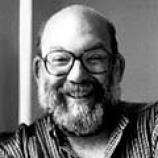Reading Group Guide
Discussion Questions
A Memory of War

1. For all the characters’ histories presented, we are only in Alex’s consciousness throughout the novel. From what point in time is Alex remembering all these events? What is the significance of that? What is the purpose of Busch having one character create the experience of memory for the other characters?
2. Busch uses repetition and variation of a certain set of words— i.e., chatter, pant, verge, panic, tingle. What is the effect of this repetition? Why does it become important?
3. Alex’s father’s name is Januscz; Nella’s former boyfriend works (Alex thinks) for Janus, the investment firm; many characters have names that feature double consonants: Nell; Teddy; Otto; William, etc. What do you make of all the mirroring? Can you find other mirror effects in the plot itself?
4. Time travel is mentioned several times. Why? How does the impossibility of real time travel comment on the process of memory? What about the mention of Alice in Wonderland?
5. Continuing the mirror idea: How do each of the major characters embody differing aspects of Alex’s self? Can we trust these portraits of characters he paints as anything other than those aspects? Can you find points in the novel where Alex states plainly that this is what they are?
6. Three main occupations are pursued by those in Alex’s present: the arts, the law, and psychoanalysis. If “All your clues are from Freud and my wife…” what are we to make of Busch’s use of these three? What of the women—Liz, Detective Rhys, Nella— who have the starring role (and Alex’s desire) in each?
7. In their final meeting before Januscz becomes aware of Sylvia’s infidelity, Alex, who is conjecturing this entire scene, has Otto and Sylvia discuss the conjecture of memory just so the loved one might be remembered. This is one of the scenes in which Busch brings two major forces of the novel—talk and love—together, making them nearly one and the same. In what other scenes does this equating occur? How do the nature of love and talk change for Alex over the course of the novel?
8. During the meeting with Grensen, Busch alternates between repeated uses of the color white and invocations of the pristine calm of Nella’s father’s house with Otto’s endurance in the dark horror and filth of the death camp. As these are taking place in Alex’s mind simultaneously, what is the implication of this back and forth? How does Alex’s imagining of Sylvia’s imagining Otto’s experience echo what Alex has told us of his time as a very young child in Barrow? At what point does the “white” of Nella’s childhood become sinister? What is the meaning of “storming in heaven?”
9. The novel ends as it begins, with a memory of his father, but a much different memory. Discuss how that memory has altered. How did the meeting with Nella’s father influence the change? What does Alex gain in return for his re-remembering?
10. Is it important, ultimately, whether or not William Kessler is actually Alex’s brother? Why did Kessler’s arrival precipitate Alex’s crisis and generate this elaborate effort of personal revision?
11. The William Carlos Williams poem that Alex remembers stealing, as a child is evocative for several reasons. Note the isolated word in each stanza; note also Alex explaining the meaning as being agricultural. How does this help render the memory as organic and appropriate to the narrative flow of his memory in general?
12. Also in regard to the poem: Williams speaks of the precise choice of detail that will turn an idea of an image into a concrete experience for the reader. Why is this poem essential to understanding how Alex is telling us his ideas about his life, his past? What is Busch saying about exactly how we make our memories real for ourselves?
13. The element of choice in memory notwithstanding, the novel faces the hard fact of a horrific set of historical events. Given what Alex tells us and how Busch gets it told, what do you think is the measure by which we can trust memory? What is the difference between memory and history?
A Memory of War
- Publication Date: March 16, 2004
- Paperback: 368 pages
- Publisher: Ballantine Books
- ISBN-10: 0345460510
- ISBN-13: 9780345460516







